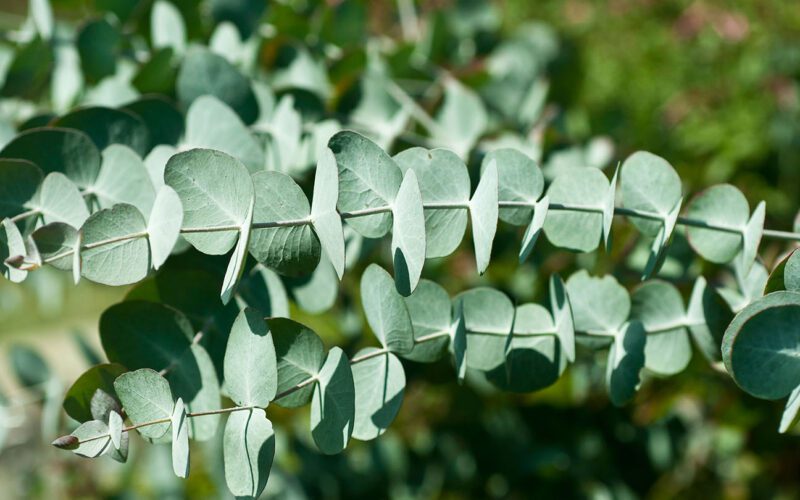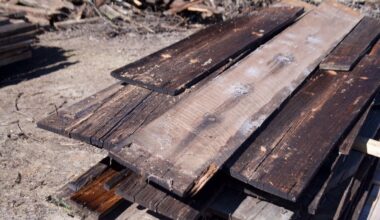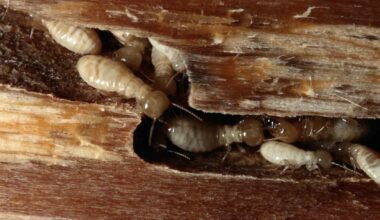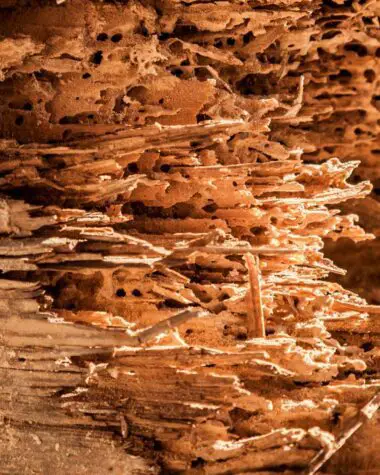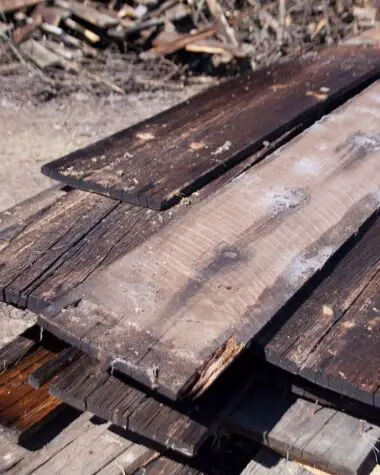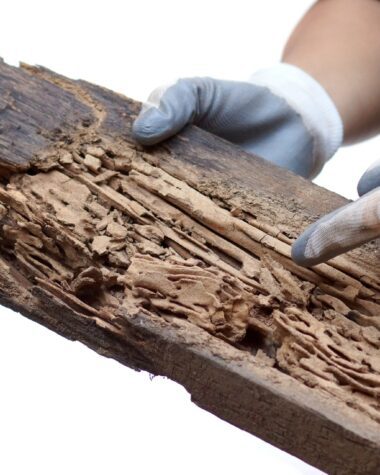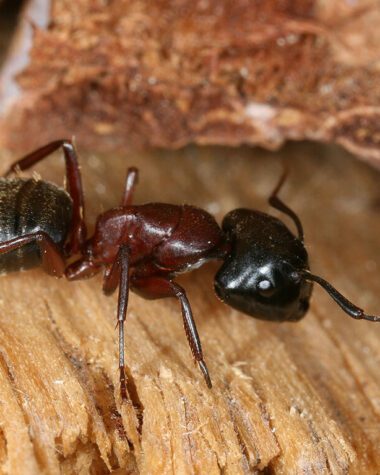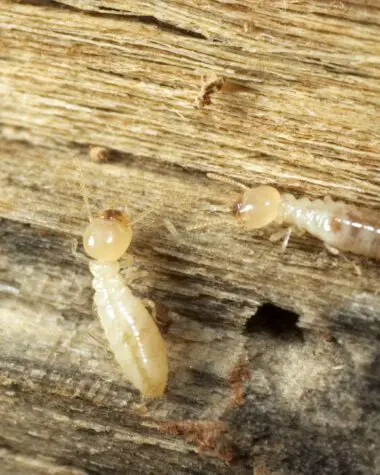Our homes and gardens are like the perfect combination for our sanctuary. However, it can be horrifying to know that some garden settings can attract pests that threaten our house, especially wooden structures.
In fact, certain plant species lure termites. Some have pleasing fragrances for termites, while some offer the perfect moisture and humid conditions for survival. Also, an improperly maintained garden or yard can be the perfect nest for pests.
However, choosing the right plants can help you achieve the perfect garden for your home while ensuring a pest-free environment. In this article, you will discover a list of plants that repel termites naturally.
Plants That Naturally Repel Termites
To prevent pests in your home, especially termites, consider keeping these termite-repelling plants near your home’s wooden foundation, windows, doors, vents, or other entry points in your property.
You can choose whichever plant you want, but you also need to consider how to properly plant and grow them. Here are your best choices:
1. Eucalyptus
Repelling Mechanism: Oil and fragrance
Best Grown in: Ground or containers
Origin: Asia
Eucalyptus can naturally deter termites with its rich scent and essential oils. Eucalyptus oils are proven highly effective in repelling termites due to their concentrated fragrance that can be used in sprays.
If you plan to make a DIY insect repellent, you can extract eucalyptus oils from the eucalyptus leaves covered with oil glands. The fragrance can be quite soothing for humans, while the scent is unbearable for termites.
You can use eucalyptus in two different ways. You can spray the extracted oil onto your wood. You can also grow a eucalyptus plant at home and take advantage of its pest-repellent qualities against termites.
2. Catnip
Repelling Mechanism: Oil and fragrance
Best Grown in: Container
Origin: Europe or Asia
Catnip is rich in a chemical named nepetalactone that can repel termites with its strong fragrance. Termites find the catnip essential oils displeasing to smell. Hence, reducing the amount of tunneling activities done by termites.
This plant does not kill termites but can help scare them away from your wooden structure. You can grow this plant in a container near your home’s wooden foundation and any vulnerable structure.
3. Peppermint
Repelling Mechanism: Oil and fragrance
Best Grown in: Containers
Origin: Europe
Peppermint is a powerfully scented plant that can be grown in pots near any wooden components of your home to repel termites. Its essential oils are even richer in scent and can be sprayed on wood to help deter and eliminate pests.
You can also use peppermint oil as a spray and apply it directly on flying termites to eliminate them and reduce their numbers. Use its intense scent to your advantage to confuse and deter termites.
4. Lemongrass
Repelling Mechanism: Oil and fragrance
Best Grown in: Containers
Origin: India
Lemongrass is a grass-like plant with extreme fragrance, making it the perfect option for your termite-free garden. It can repel termites with its heavy scent, and its mulch can further prevent a possible infestation.
You can extract the lemongrass oils and use them as a spray to control termites and stop them from nesting. Or you can plant lemongrass in containers. However, this plant tends to grow aggressively. So you need to learn how to properly maintain it.
If you plan to use lemongrass as mulch, replace it after its fragrance disappears and starts to decompose. Once the smell is gone, termites can easily attack the decaying grass, which no longer contains repelling oils.
5. Iris
Repelling Mechanism: Attractive to predatory bugs
Best Grown in: Ground or containers
Origin: North America
Iris are useful in controlling and repelling insects like termites. They can also attract dragonflies, which are effective termite predators. These dragonflies can eat and eliminate flying termites until the number of pests permanently drops to zero.
You can also consider creating a pond to attract more dragonflies around your irises. With all these, you can easily achieve a lovely and pest-free garden by growing these flowers and attracting more dragonflies.
6. Tea Tree
Repelling Mechanism: Oil and fragrance
Best Grown in: Ground or containers
Origin: Australia
Tea tree leaves and essential oils are heavily scented with fragrances that deter termites. The oils can be used as an organic pesticide. Just spray it on any wood structures vulnerable to termite attack.
The extremely fragrant oils can be found in the tea tree leaves. So, placing a plant or leaves around may help to scare away termites since they find tea trees’ smell repulsive. You can also directly apply the oil to termites to kill them.
If you plan to keep a tea tree in your garden, it’s best to grow these plants in a container rather than directly in the ground. This way, termites cannot destroy their roots under the soil, potentially killing your tea tree.
7. Oregano
Repelling Mechanism: Oil, fragrance, and attractive to predatory bugs
Best Grown in: Containers
Origin: Mediterranean
Oregano is an aromatic herb that can be used as an effective predatory control against termites. This plant can repel termites with its strong scent. Also, it can attract chickens that eat termites, reducing their numbers and preventing an infestation.
This herb must be grown in containers to control its aggressive growth around your area. You can place your little oregano plant near windows, tables, or any wooden structure and furniture. The smell can be soothing to humans while extremely unbearable for pests.
8. Garlic
Repelling Mechanism: Oil and fragrance
Best Grown in: Ground or containers
Origin: Asia
Garlic is highly effective in repelling termites and preventing termite damage. The pungent smell of garlic and its oil can easily scare away termites. You may not like the scent of garlic, but you can use it to stop termites from invading and disturbing your home and wooden structures.
You can grow a garlic plant in your garden to avoid termite infestation and nesting on your garden beds. If you cannot really stand the smell, you can mix garlic oil with other fragrant oils and use it as a spray to repel termites.
9. Vetiver Grass
Repelling Mechanism: Oil and fragrance
Best Grown in: Ground or containers
Origin: India
Vetiver grass has a deep root system that grows downwards and can effectively prevent termites from nesting underground. It also contains oils that can reduce termite numbers and decrease their destructive tunneling activities.
You can grow vetiver grass in your yard and lawns to reduce termite populations in your garden and home. You can also grow it in a container to easily protect it from the cold and harsh weather conditions outside.
10. Painted Daisies
Repelling Mechanism: Fragrance and production of insecticide
Best Grown in: Ground or containers
Origin: Europe
Painted daisies can produce pyrethrins, which are highly effective in repelling termites and are commonly used in organic pesticides. This plant can easily kill termites and other pests upon contact by targeting their nervous systems and immediately paralyzing them.
To make a DIY repellent, you can crush the flowers and use it to block termite nests and eventually reduce their numbers. However, you must be extra careful when dealing with this plant because it can be dangerous to other animals. It can cause rashes and loss of coordination if ingested.
11. Autumn’s Mums
Repelling Mechanism: Fragrance and production of insecticide
Best Grown in: Ground or containers
Origin: Asia
Chrysanthemums or Autumn’s mums also contain significant amounts of pyrethrin, which makes this plant an effective termite-repellent. You can grow this plant in the ground, but it is advisable to plant them in pots.
You must keep them away from pets and children to prevent toxic consumption. Ingestion of this plant can cause severe stomach pain, so be extra careful. This way, you can enjoy a termite-free home while ensuring a safe space for your loved ones.
12. Lavender
Repelling Mechanism: Oil, fragrance, and attractive to predatory bugs
Best Grown in: Containers
Origin: Mediterranean
Lavender is widely used for its potent aroma that can be unappealing to termites. This plant contains a natural compound called Linalool which can control and repel termites. Also, the scent of Lavender can attract dragonflies which are known termite predators.
Additionally, lavender oil has a much stronger fragrance and high concentrations that have been confirmed effective in eliminating termites. Hence, it can be used as a great ingredient in making anti-termite sprays.
13. Neem
Repelling Mechanism: Oil and fragrance
Best Grown in: Ground or containers
Origin: India
Neem trees are a great source of neem oil, which is an effective termite repellent. Neem oil is commonly combined with other concentrated oils to control termites and prevent the spread of termite tunnels.
You can grow these plants in your yard or place them indoors to dissuade termites from invading and nesting in your home. You can also keep neem leaves in cupboard to repel other insects.
Do termites harm plants?
The worse truth is termite feed on cellulose, which is commonly found in woody plants. If you have shrubs and trees in your garden, they can be vulnerable to a termite attack. If they do not have proper access to their woody source, termites can be a little creative.
Termites may start eating the roots of your plants and nest underground. Without roots, they can easily kill the plant and stop its production of oils that can repel them. Once your plant decays, the termite will start consuming it.
With that being said, it is important to consider placing your plants in well-maintained and properly monitored spaces. You can grow your plants indoors or in pots. Make sure to keep an eye out for any dead leaves, where an infestation may start.
How do I prevent termites?
Aside from planting termite-repelling plants, you can prevent termites by following precautionary measures in maintaining your property, especially your yard and garden. Here are useful tips to prevent termite attacks and infestation:
- As much as possible, avoid overwatering your grass.
- Quickly remove any decaying wood such as logs and fallen branches from your yard.
- Store woodpiles and firewood away from the house.
- Regularly trim trees and bushes.
- Use inorganic mulch that cannot be eaten by termites.
- Seal and fix cracks in your home’s foundation to avoid any entry points.
Conclusion
Termites can cause severe problems to your home and wooden structure so it is vital to eliminate them immediately and permanently. Wiping out an entire termite colony may be done naturally at home or may require professional and chemical help.
You can hire an expert to check your place for a proper wood infestation inspection. You can also try several proven effective chemicals against termites. If termite-repellent plants do not work against these critters, you can try commercial products, such as foam termiticide, termite baits, termiticide barrier chemicals, nematodes, and boric acid.
To successfully protect your home and wooden structure, you can also learn more about wood infestation and discover its causative factors, prevention, and treatment.
